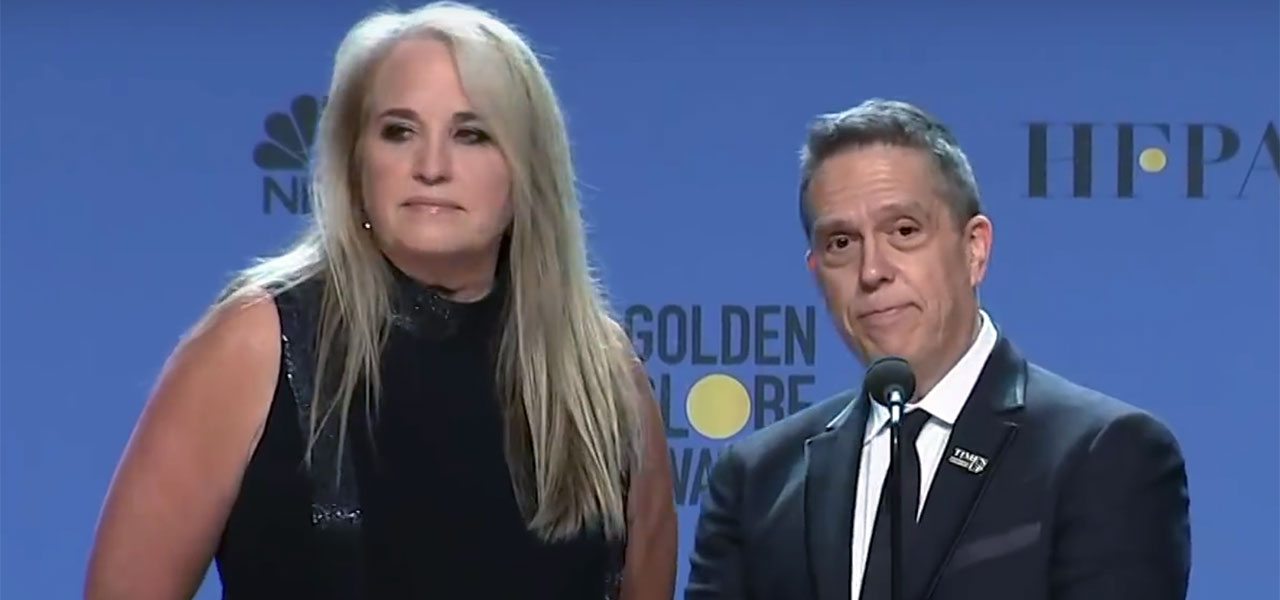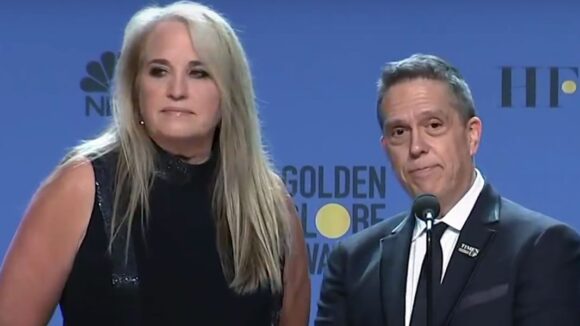

Watch The Director And Producer Of ‘Coco’ Address John Lasseter Sexual Harassment Allegations
This award season, the biggest challenge for Coco director Lee Unkrich isn’t deciding what to wear to each award ceremony; it’s pretending that his film’s executive producer, John Lasseter, doesn’t exist.
That’s because the executive producer is John Lasseter, the Disney and Pixar animation studio’s chief creative officer who is currently on a six-month leave of absence after being accused of sexually harassing a large number of women over a period of more than a decade.
When Unkrich accepted the Golden Globe for Coco last Sunday, he carefully avoided mentioning Lasseter by name in his speech, instead thanking “the executive teams at Pixar and Disney.” That’s a significant departure from year’s past, when the Disney and Pixar filmmakers have always thanked Lasseter. Big Hero 6 co-director Don Hall called Lasseter “the best boss in the world,” Zootopia producer Clark Spencer identified him as “the incredible John Lasseter,” Frozen co-director Chris Buck who called Lasseter his “fearless leader,” and Inside Out producer Jonas Rivera thanked “the amazing artists we work with at Pixar led by John Lasseter.”
The Incredible Disappearing Lasseter act became harder to pull off though during the backstage press interview when, among the standard softball questions, one journalist decided to bring up Lasseter, asking the Coco makers: “This whole event is reflecting the impact of this incredible outpouring of accusations that have really rocked this industry. Pixar has not been untouched by allegations of an environment that could be difficult for women. Has there been any changes at Pixar? Can you talk about going through that experience, even within your own company?”
A visibly uncomfortable Darla Anderson, Coco’s producer and a 25-year Pixar veteran, made the first attempt at answering the question:
Tonight obviously we wanted to focus on being in solidarity with tonight’s movement…and um…[laughs, smiles at co-director Adrian Molina]…and um…and uh…and we have been looking at a lot of things at making our environment as safe as possible and with as much integrity as possible, for sure.
Unkrich follows up, first by sidetracking the question into an issue of diversity, before finally circling back and vaguely addressing Lasseter:
It was really vital to all of us, and Darla is kind of the general of our army, being the producer of the film. From the very beginning, we tried to create an environment that really welcomed as many diverse voices as possible. Not only through the consultants that we brought in, but through the crew that we assembled. It was a very diverse crew and we’re proud of that, and we believe that all of those voices that we brought together really did help make the movie as successful as it was.
And so, moving ahead, we’re learning from the lessons of what we did on Coco. As it’s clear from everything going on in the industry, we all can improve. We can all be better. At Pixar, we have been taking steps, and we will continue to move towards making it an even better place for people to create art.
What the steps that Unkrich is referring to might be are unknown. It is yet another unanswered question, among others such as who at the Walt Disney Company knew about Lasseter’s behavior, why was it allowed to go on for as long as it did, and what kind of financial settlements has Disney reached with Lasseter’s accusers?
For now, Lasseter remains the highest-profile movie industry executive accused of extensive sexual misconduct to have gotten off scot-free. And the only publicly known consequence of his inappropriate behavior sounds more like a reward than punishment: a six-month vacation away from the studio.
Perhaps after Coco wins the Oscar in March, the Disney Company will finally make clear whether it intends to hold Lasseter accountable for his misconduct.
The backstage exchange at the Golden Globes can be seen below starting at 3:25:

.png)